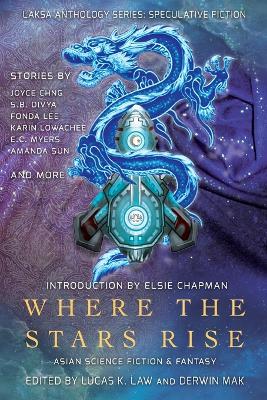
annieb123
Written on Oct 11, 2017
I can be fairly clueless.
I love anthologies and picked this one solely on the basis of its cover. I was not aware until I started reading the introduction (yes, I read the introduction and you should also) that it was a collection of Asian SF & fantasy.
Second background tidbit: I have been involved in fandom in one form or another for over 40 years until I mostly passed the baton on to my three minions (two females and a male).
This means, as a female heavily involved in fandom in the late 60's through the 00's, I've been marginalized, patted on the head, straight up disdained, called names, and worse. Some of the nastiness came from my 'peers' in non-fandom of course, but a discouragingly large amount came from other fans. Generally caucasian, nearly universally male. You grow a tough skin, you move on (or quit).
Fast forward to the time period between 2000 and the present day. Non-white-non-male fans and authors seemed more welcome to the dialogue and to bring N-W-N-M voices to the chorus. Things seemed to be going ticketty-boo. Then the backlash. There always seems to be a backlash. Puppygate, calling out Social Justice Warriors, etc etc.
For people who will read the description and think 'Where the Stars Rise is not for me'. Or 'these authors' voices are not speaking to things which concern me', this is a collection of well written (in some cases transcendent) stories which speak to our common existence. They're not all perfect of course, but all of them are worthwhile.
As stated on the cover, this is a collection of 23 short works written by Asian authors. As with all anthologies, it's a mixed lot. They're all in the 3-5 star range, well weighted to the upper 4 star range. There are some truly standout pieces; Memoriam by Priya Sridhar, Back to Myan by Regina Kanyu Wang, and The dataSultan of Streets and Stars, by Jeremy Szal were amazing for me. There are many more well written stories included, but just these three alone are worth the price of the anthology.
Why is it important to read and expose oneself to other voices and other ideas? It's precisely because our strength is in our diversity. Unity and understanding can only come from growth. What other people have to say is vitally important and if we're going to live together on this planet and not die together, we desperately need to stop marginalizing one another.
Four stars
Disclosure: I received an ARC at no cost from the author/publisher.
